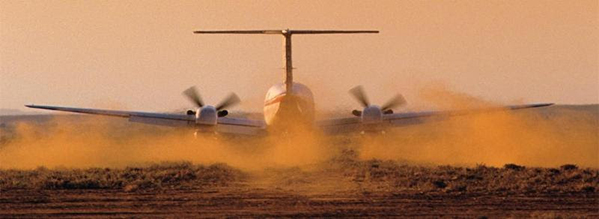 Astronics Corporation (NASDAQ: ATRO), through its wholly-owned subsidiary Astronics Max-Viz, announced that its newest Enhanced Vision System (EVS), the Max-Viz 1400, has been installed on five Beechcraft King Air aircraft for the South Eastern Section of the Royal Flying Doctor Service of Australia.
Astronics Corporation (NASDAQ: ATRO), through its wholly-owned subsidiary Astronics Max-Viz, announced that its newest Enhanced Vision System (EVS), the Max-Viz 1400, has been installed on five Beechcraft King Air aircraft for the South Eastern Section of the Royal Flying Doctor Service of Australia.
“These enhanced vision systems are perfectly suited to the Royal Flying Doctor Service’s mission to provide life-saving emergency evacuations and healthcare services day and night in obscured visibility across south eastern Australia,” said Elliott Troutman, Astronics Max-Viz Executive Vice President.
The South Eastern Section of the Royal Flying Doctor Service purchased 5 EVS Systems for King Air operation in remote and rural Australia.
See up to 10 times further in obscured visibility
The Astronics Max-Viz 1400 EVS enables pilots to see up to ten times further than unaided human vision in visibility-obscured conditions, such as smoke, haze and light fog, day or night. Priced at $25,000, the Max-Viz 1400 EVS features a lightweight, solid-state, uncooled thermal camera with a sensor image that can be displayed on Garmin G500, G600, G1000, Avidyne R9, Bendix King KMD-850, AvMap EKP-V, Flipper, Rosen monitors and EFBs.
The five new Astronics EVS systems for the Royal Flying Doctor Service were integrated into the Garmin G1000-equipped King Airs operated by the South Eastern Section. Complete Avionics, a leading avionics support center located in Bilinga QLD 4225, installed the Max-Viz 1400 system and handled the Australian certification. FAA installation approval in the United States is expected in 2016.
The Royal Flying Doctor Service has a fleet of 68 aircraft that includes 29 Beechcraft King Air 350 and 200. The South Eastern Section of the Royal Flying Doctor Service missions are flown 24 hours a day, seven days a week and include medical issues requiring emergency evacuation as a result of motor vehicle and motorbike accidents, broken bones, heart attacks and strokes, sudden and severe chest pain, respiratory failure, snake and spider bites and work related injuries. The South Eastern Section services southwest Queensland, eastern and northern South Australia, New South Wales, Victoria and Tasmania.




